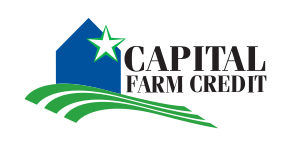Cash Flow 101 | Stepping Up Your Game

There are plenty of songs written about cash money. We all want it, strategize ways to achieve it, and hopefully find ways to keep it.
However, without a set plan for managing your cash position, your song will likely hit a sour note. According to Jason Fuchs, Capital Farm Credit vice president of sales, "A goal without a plan is just a wish."
Fuchs explains analyzing credit involves evaluating tax returns, income expense statements, present balance sheets and cash flow statements to indicate a pattern for the future.
Fuchs builds upon #teamCFC Pat Shields' previous balance sheet discussion, by focusing on cash flow statements for farming operations and the tool it provides both the farmer and the lender. The cash flow statement, says Fuchs, "is a forward-thinking business plan." It is a financial statement that summarizes the amount of cash and cash equivalents entering and leaving an operation.
The three components
There are three main components to the cash flow statement.
Cash from operating activities can include:
- Sale receipts from goods and/or services
- Interest payments
- Income tax payments
- Payments to suppliers
- Salary payments
- Rent payments
Cash from investing activities (changes in equipment, assets, or investments) can include:
- Purchase or sale of an asset
- Loans to vendors, or received from customers
Cash from financing activities including three main types of cash inflows and outflows:
- Cash gained from issuing equity (stocks, bonds, etc.) or debt
- Dividend payments
- Repurchase of debt or equity
Changes in cash when capital is raised from financing are considered "cash in."
And when dividends are paid, this is considered "cash out."
Net cash flow isn't enough
Breaking out the different types of cash flows lets you easily see which activities are generating the most income and expenses for your business. It provides a more accurate view of your financial health.
Take your business to the next level
Fuchs points out that agriculture has fundamentally changed.
"In generations past," he says, "the more a farmer worked, the more he made."
Today, it's a matter of working smarter, not necessarily harder.
Fuchs recommends that any farmer or rancher wanting to "up their game" review coursework like the programs offered from Dr. Dave Kohl, Professor Emeritus of Agricultural Finance and Small Business Management and Entrepreneurship from Virginia Tech. Understanding and utilizing cash flow statements are just one part of the total equation. Looking into continuing education has its benefits.
"Dr. Kohl has worked with Farm Credit to create courses within an online system called Farm Credit University," says Fuchs. "Within the system are college-level, online courses designed with farmers and ranchers in mind. The courses can give you the skills needed to take your business to the next level."
The Bottom Line
All-in-all, a cash flow statement is a valuable measure of strength, profitability and the long-term outlook for a company. Passion for agriculture is great, and necessary, but success occurs when you marry it with the financial and economic side of running a business.
Joining the two will assist you in launching, growing, managing and/or transitioning your ag operation with greater success. Need financing for any of the above? Contact your local Capital Farm Credit office.
